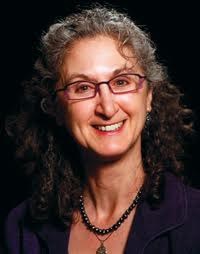If you are reading this article on October 15, 2016 (the intended date of publication) Jews around the world will have celebrated Rosh Hashana (Jewish New Year) and Yom Kippur (Day of Atonement). Tomorrow, we enter Sukkot and Simchat Torah (The Season of our Rejoicing).
This is a spiritually intense time for many Jews, including those who may not pray regularly or be affiliated with a congregation. It is a time when many Jews go to synagogue or pick up a Siddur (prayer book), looking for inspiration and connection with the Divine. It is a time to commit to more Jewish studies or observing particular mitzvoth (commandments) in the coming year.
Since 2007, I have been part of a Torah study group, led by Rabbi Kaplan of Chabad of 91ԭ�� Island. Each week, we read together from the Shulchan Shabbat books, a five-volume set that contains insightful essays based on the works of the Lubavitcher Rebbe of blessed memory. The essays we study are directly related to the week’s Torah reading.
This week we studied part of Parshah Ha’azinu (Deuteronomy 32:1–52). Ha’azinu means, “Listen in”, which seems to me a perfect theme for this time of personal reflection and spiritual goal setting. We learned that when you hear someone you may not be close to them, but in order to really listen to someone, you do need to be close. We hear G-d when we do Mitzvot (commandments, including good deeds); we listen to G-d when we study and seek to understand Torah.
There is a unique twist to our Torah class: the books we use are written entirely in Hebrew with no English translation and no nikkud (dots and dashes) to indicate how to pronounce the vowel sounds. We take turns reading aloud to the Rabbi, a phrase or sentence at a time. He gently corrects our pronunciation when we make mistakes and then translates the section we have just read into English.
These classes are both inspiring and exhausting for me, because while I am often able to grasp the complex spiritual concepts as translated by the Rabbi, I often feel like I am in kindergarten when it comes to reading Hebrew without the nikkud. Some days, it seems that I can read whole paragraphs with little help; I understand the words and catch a glimpse of the Rebbe’s wisdom before Rabbi Kaplan starts to translate. Other days, it seems that I cannot read more than two or three words correctly, and I understand nothing, but that doesn’t stop me from trying week after week.
When I made a personal commitment to study Torah I didn’t stipulate any conditions. I didn’t predict that it would take me a certain number of months or years to learn what I wanted to learn. ��I didn’t say I would only study when it was easy or when I felt like it. Sometimes I was unable to attend classes because of my work, as soon as my schedule allowed, I rejoined the class.
This struggle is essential to my personal and spiritual growth. It helps me empathize with my own students as they struggle to learn new skills. It teaches me to be humble in the face of what I do not know, and to keep going even if I feel lost and confused.
If you are reading this and wondering what you can do for your own spiritual growth this year, I encourage you to contact your synagogue, church, temple, mosque or other house of worship and start to study. Don’t be afraid to be in kindergarten again.
 Fiona Prince, MA is a coach, facilitator and teacher who provides fundamental communication and writing skills to help people succeed in their professional and academic lives. She worships at the Chabad Family Shul where she volunteers teaching children and adults how to read Hebrew. Sign-up for weekly communication tips atTo learn to read Hebrew, contact her at . (Morah means teacher and Faiga is her Hebrew name).
Fiona Prince, MA is a coach, facilitator and teacher who provides fundamental communication and writing skills to help people succeed in their professional and academic lives. She worships at the Chabad Family Shul where she volunteers teaching children and adults how to read Hebrew. Sign-up for weekly communication tips atTo learn to read Hebrew, contact her at . (Morah means teacher and Faiga is her Hebrew name).
You can read more articles from our interfaith blog, Spiritually Speaking
* This article was published in the print edition of the Times 91ԭ�� on Saturday, October 15 2016


